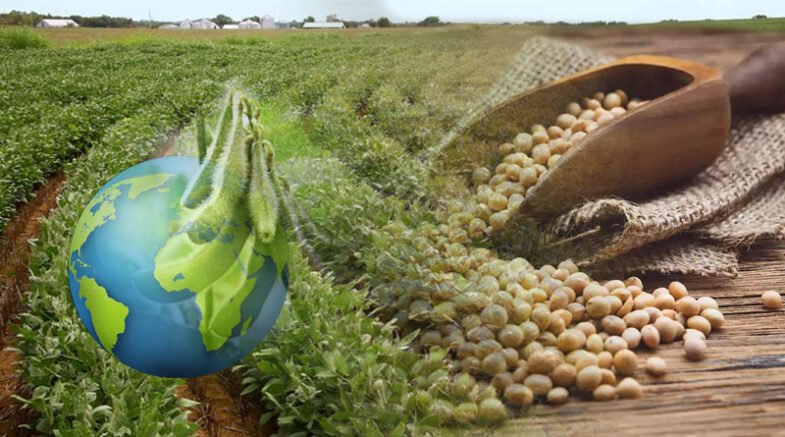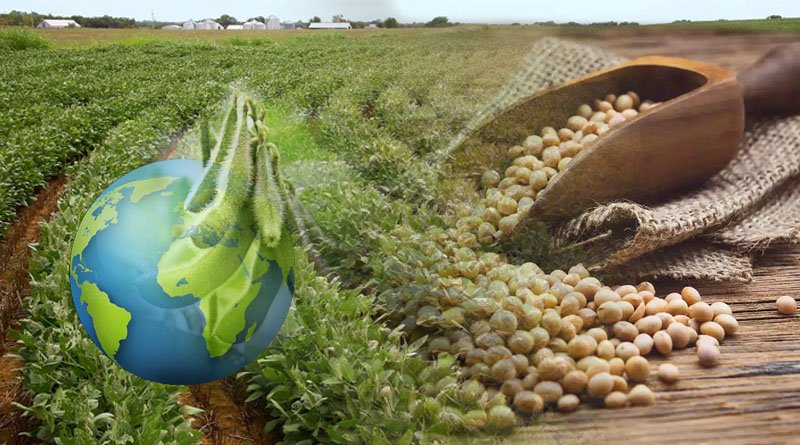Soybeans are an important source of food & feed, with most of the crops used for animal feed. This is due to their high protein content, which makes them an ideal livestock food source.

Soybeans are a versatile crop that has been gaining increasing attention in recent years for their important role in global food security. As one of the most widely produced and consumed crops worldwide, soybeans are an essential source of protein, fiber, and healthy fats for millions.
In this article, we will examine the role of soybeans in global food security and explore some of the challenges and opportunities associated with their production and consumption.
Soybeans are an important source of food and feed, with most of the crops used for animal feed. This is due to their high protein content, which makes them an ideal livestock food source. However, soybeans are also consumed directly by humans, either as whole beans or as processed products such as tofu, soy milk, and soy sauce.
The importance of soybeans for global food security cannot be overstated. Soybeans are grown in over 100 countries, with the most prominent producers being the United States, Brazil, and Argentina.
In many developing countries, soybeans are a critical source of protein and other essential nutrients, particularly in regions with limited access to animal protein.
One of the critical benefits of soybeans is their ability to improve soil health and reduce the need for chemical fertilizers. Soybeans are a nitrogen-fixing crop, which means they can convert atmospheric nitrogen into a form that plants can use.
This reduces the need for nitrogen fertilizers, which are often expensive and can harm the environment. In addition, soybeans can be grown in rotation with other crops, which helps to break up pest and disease cycles and reduce soil erosion.
However, there are also challenges associated with soybean production and consumption. One of the biggest challenges is the impact of soybean production on the environment. Soybeans are often grown using intensive agricultural practices, which can lead to deforestation, soil erosion, and water pollution.
In addition, soybean production can be associated with genetically modified organisms (GMOs), which has raised concerns among some consumers.
Another challenge is the impact of soybean production on small-scale farmers. In many developing countries, small-scale farmers struggle to compete with large-scale industrial producers, who can access better technology and resources. This can lead to the displacement of small-scale farmers and the loss of traditional farming practices.
Despite these challenges, the role of soybeans in global food security remains critical. As the global population continues to grow, the demand for food will continue to increase. Soybeans have the potential to play a vital role in meeting this demand, particularly in regions where access to animal protein is limited.
To address the challenges associated with soybean production and consumption, promoting sustainable agricultural practices and supporting small-scale farmers is crucial. This includes promoting agroforestry, which combines tree planting with crop cultivation to improve soil health and reduce the environmental impact of agriculture.
It also means investing in education and technology to help small-scale farmers increase their productivity and profitability.
In conclusion, soybeans are an essential crop for global food security, providing a critical source of protein and other essential nutrients. However, their production and consumption must be carefully managed to ensure they are sustainable and equitable.
By promoting sustainable agricultural practices and supporting small-scale farmers, we can ensure that soybeans continue to play a critical role in feeding the world’s growing population.
